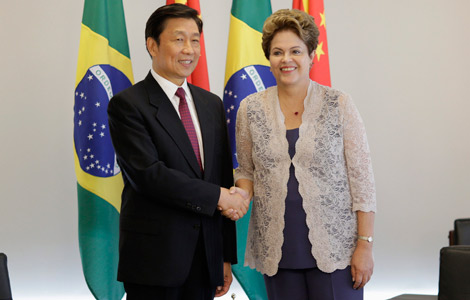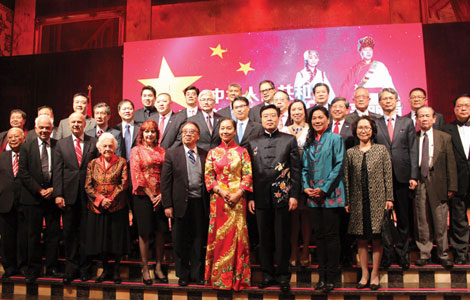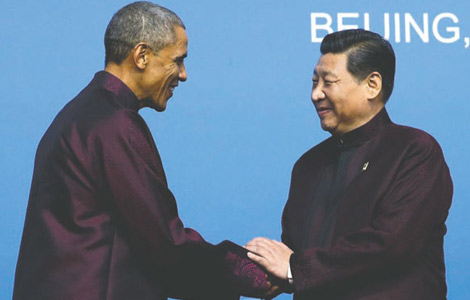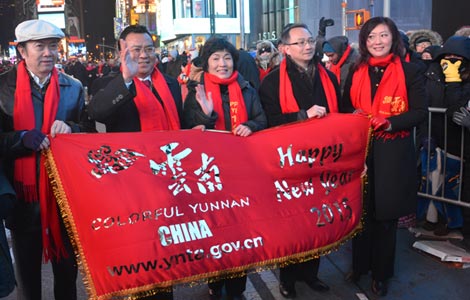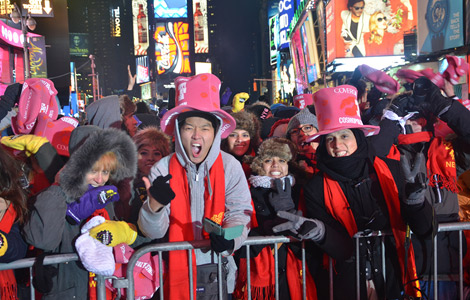Iran, 6 powers move closer to nuke talks deal
Updated: 2015-01-03 17:43
(Agencies)
|
||||||||
VIENNA - Iran and the United States have tentatively agreed on a formula that Washington hopes will reduce Tehran's ability to make nuclear arms by committing it to ship to Russia much of the material needed for such weapons, diplomats say.
In another sign of progress, the two diplomats told The Associated Press that negotiators at the December round of nuclear talks drew up for the first time a catalog outlining areas of potential accord and differing approaches to remaining disputes.
The diplomats said differences still dominate ahead of the next round of Iran-six power talks on Jan. 15 in Geneva. But they suggested that even agreement to create a to-do list would have been difficult previously because of wide gaps between the sides.
Iran denies it wants nuclear arms, but it is negotiating with the US, Russia, China, Britain, France and Germany on cuts to its atomic program in hope of ending crippling sanctions. The talks have been extended twice due to stubborn disagreements.
The main conflict is over uranium enrichment, which can create both reactor fuel and the fissile core of nuclear arms. In seeking to reduce Iran's bomb-making ability, the US has proposed that Tehran export much of its stockpile of enriched uranium - something the Islamic Republic has long said it would not do.
The diplomats said both sides in the talks are still arguing about how much of an enriched uranium stockpile to leave Iran. It now has enough for several bombs, and Washington wants substantial cuts below that level.
But the diplomats said the newly created catalog lists shipping out much of the material as tentatively agreed upon. The diplomats, who are familiar with the talks, spoke to the AP recently and demanded anonymity because they are not authorized to comment on the closed negotiations.
Issues that still need agreement, they said, include the size of Iran's future enrichment output. The US insists that it be cut in half, leaving Tehran with about 4,500 present day centrifuges used to enrich uranium, or less if it replaces them with advanced models. Tehran is ready for a reduction of only around 20 percent, or approximately 8,000 of the machines, according to the diplomats.
Two other unresolved issues are Iran's Fordo underground enrichment site and the nearly built Arak nuclear reactor. The US and its five allies in the talks want to repurpose Fordo to a non-enrichment function because it is believed impervious to a military attack from the air. The six also seek to re-engineer Arak from a model that produces enough plutonium for several nuclear weapons a year to a less proliferation-prone model.
On Saturday, Iranian Foreign Ministry spokeswoman Marzieh Afkham denied any tentative formula had been reached.
Negotiators hope to reach a rough deal by March and a final agreement by June 30.
- US denies reports about proposed prisoner swap with Iran
- Future Iran nuclear talks need to be based on compromise, trust
- Mollasadra Hydropower Station, Iran
- Yearender: Difficulties lie ahead as Iran nuclear talks to enter new year
- Iran says australia ignored warnings
- Good atmosphere prevails in Iran-US talks
Most Viewed
Editor's Picks

|

|
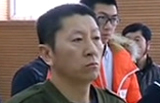
|
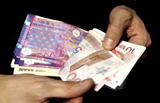
|

|

|
Today's Top News
US sanctions DPRK over Sony cyberattack
Major challenges facing Brazilian president's 2nd term
Rousseff vows to restore economic growth in 2nd term
Crowds mourn stampede victims
Orchestra exchanges play key role
Sino-US ties set to be modified, diplomat says
Chinese expected to travel more in 2015
Forum to elevate China-Latin America ties
US Weekly

|

|


